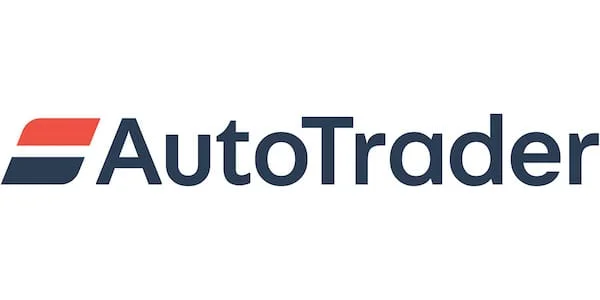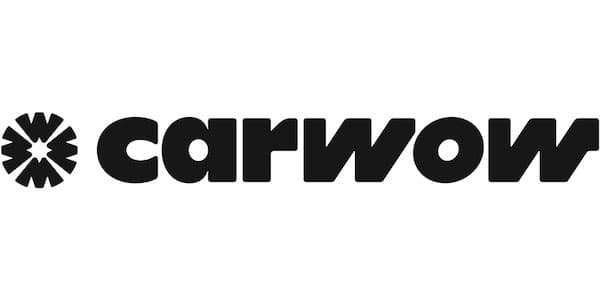We’ve now reached the halfway point of 2024, so we can have a good look at the new car sales market – and it’s very much a tale of contrasting fortunes.
The UK now has a fairly entrenched two-speed new car market. Fleet sales are ticking along strongly and consistently, which is a combination of large businesses continuing to catch-up delayed vehicle purchases from the pandemic, and strong business confidence encouraging ongoing fleet turnover.
On the other hand, private new car sales are crumbling. The half-year results for private sales are the worst since the current twice-yearly registration plate change came into effect in 1999. Or, if you prefer, the worst sales results in more than a quarter of a century – with the obvious exception of 2020, when the UK was plunged into a sudden lockdown from March to May and almost no cars were sold. It’s bad news every month, and seemingly getting worse.
There has been a concerted push from some aspects of the media to blame poor private new car sales on a lack of EV demand, and the car industry seems happy to go along with that view in public as it suits the industry’s current lobbying for more government subsidies for EVs. But it’s not accurate.
Private new car sales peaked in 2016 and have been sliding ever since. There are multiple reasons for this, although the biggest factors have been related to car finance (which is also why business registrations have declined).
As well as being numerically low, private registrations in 2024 have also taken the lowest percentage of the overall new car market. In 2024 to date private sales have made up only 38% of all new registrations, which is a record low. This compares to an average of 46% over the prior 24 years, and a gradual decline from almost 50% near the start of the century. Even though 2020 half-year results were worse due to the Covid pandemic, as shown below, this affected fleet and business sales as well so the overall market fell in proportion.
January to June new car registrations over the last 25 years
| Year | Private registrations | % of all registrations | Fleet registrations | Business registrations | All registrations |
|---|---|---|---|---|---|
| 2024 | 382,881 | 38% | 600,404 | 23,470 | 1,006,763 |
| 2023 | 435,325 | 46% | 490,764 | 23,631 | 949,720 |
| 2022 | 428,034 | 53% | 354,442 | 19,063 | 802,079 |
| 2021 | 410,698 | 45% | 481,258 | 18,017 | 909,973 |
| 2020 | 314,588 | 48% | 325,518 | 13,396 | 653,502 |
| 2019 | 568,046 | 45% | 671,400 | 29,799 | 1,269,245 |
| 2018 | 587,256 | 45% | 677,614 | 49,124 | 1,313,994 |
| 2017 | 617,679 | 44% | 728,582 | 55,550 | 1,401,811 |
| 2016 | 649,237 | 46% | 717,483 | 53,916 | 1,420,636 |
| 2015 | 637,051 | 46% | 685,184 | 54,654 | 1,376,889 |
| 2014 | 623,640 | 48% | 602,113 | 61,512 | 1,287,265 |
| 2013 | 557,498 | 48% | 555,561 | 50,564 | 1,376,889 |
| 2012 | 476,283 | 45% | 537,176 | 44,221 | 1,057,680 |
| 2011 | 438,199 | 43% | 537,815 | 53,624 | 1,029,638 |
| 2010 | 535,155 | 48% | 519,933 | 53,574 | 1,108,622 |
| 2009 | 427,911 | 46% | 445,194 | 51,850 | 924,955 |
| 2008 | 537,359 | 43% | 629,344 | 80,776 | 1,247,479 |
| 2007 | 564,988 | 45% | 617,286 | 85,025 | 1,267,299 |
| 2006 | 560,252 | 45% | 601,195 | 80,478 | 1,241,925 |
| 2005 | 587,205 | 45% | 618,408 | 90,872 | 1,296,485 |
| 2004 | 659,721 | 48% | 566,719 | 150,127 | 1,376,567 |
| 2003 | 665,075 | 49% | 549,734 | 132,676 | 1,347,485 |
| 2002 | 664,349 | 49% | 557,481 | 125,863 | 1,347,693 |
| 2001 | 617,861 | 49% | 536,867 | 114,300 | 1,269,028 |
| 2000 | 520,085 | 43% | 566,913 | 129,739 | 1,216,709 |
So why are private new car sales performing so badly?
There are several reasons why private new car sales have been falling for the last eight years, but the biggest is that buyers have been buying ever-more expensive cars on car finance agreements and then trying to fit those into budgets that have not been increasing at the same rate.
Longer car finance terms
PCP car finance has been around since the 1980s, but it really started to take off in about 2010 in conjunction with a government scrappage scheme – launched in the depths of the great financial crisis in 2009 and helped by record low interest rates. Long story short, customers could buy a more expensive car for lower monthly payments than they had been used to, and they liked it.
But cars, and customer tastes, got even more expensive. So rather than buying cheaper cars to keep their payments down, buyers started taking longer agreements instead. The default PCP term shifted from three years to four years, and that meant 25% fewer new car buyers each year as everyone kept their existing car for a year longer.
Cars have become much more expensive
New cars have also become increasingly expensive over the last decade. To pick one popular car as an example: Back in 2015, the then-new Vauxhall Corsa launched with a starting price of £8,995. Today, a new Corsa starts at £18,505 – more than double the price.
Over the same period, average weekly earnings haven’t come close to matching that level of increase, and real-world average disposable income hasn’t really increased at all for many people.
Higher interest rates make car finance more expensive
On top of the extreme price increases, the cost of financing a new car has increased significantly as interest rates have climbed over the last couple years after more than a decade at record lows. This adds a significant extra chunk onto monthly payments for a PCP (or a lease, but the costs of leasing are much more opaque).
Private cars counted under fleet registrations
As costs have increased, customers have increasingly been looking for alternatives to PCP car finance. Some have turned to leasing (personal contract hire), company car schemes or salary sacrifice – especially if they’re looking for an electric car. However, any new cars obtained via these methods are counted as fleet registrations rather than private registrations, as the leasing company is the owner of the vehicle rather than the end user. So there has been a small but significant shift of new cars from the private registration category to the fleet registration category. This particularly affects EVs, as they have the greatest tax benefits from using company car or salary sacrifice schemes, even for privately used cars.
(Incidentally, the same has applied to business purchases, as fewer small businesses choose to buy their company cars outright these days and prefer to lease them.)
Electric cars are even more expensive
Although the price of electric cars has come down over the last few years (or at least held steady), in contrast to petrol and diesel cars, there’s still a definite gap on like-for-like vehicles. To stick with the Vauxhall Corsa, an electric model is about £10,000 dearer than an equivalent petrol version with an automatic gearbox.
Even with some significant discounting and favourable finance terms currently available on a lot of electric vehicles, the upfront and monthly costs are still generally higher – unless you’re eligible for a salary sacrifice scheme.
Most industry analysts expect EV and petrol car prices to reach parity in the next couple of years, but we’re not there just yet.
There’s no end in sight for the current situation
The fall in private new car sales has been accelerating over the last year and there doesn’t appear to be any improvement on the horizon. Cars are not going to magically get cheaper, and finance rates are not going to return to the historic lows of the last decade.
Fewer households are buying brand-new cars, and those who do are keeping their cars for longer. More people are shifting from buying new cars to buying used instead, with used car sales growing steadily over the last few years as private new car sales have declined.
That’s not necessarily a bad thing from a household finance point of view, or from an environmental point of view. The vast majority of consumers change their cars because their finance agreement is coming to an end, not because their cars are falling apart. Keeping your car for four years instead of three is actually quite prudent in most cases.
But it’s obviously a problem for the car industry if people stop buying new cars – and if you want a steadily supply of used cars, you need someone to be buying those cars new in the first place. It’s even more crucial if the industry wants to have any chance of hitting its targets for selling new electric cars, so we can expect to see offers and incentives improving throughout the rest of this year.






